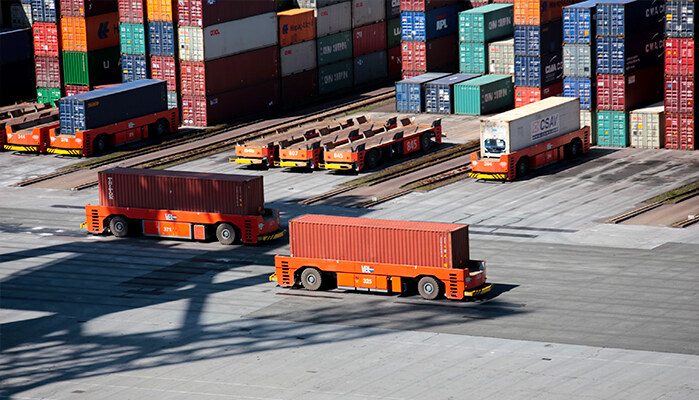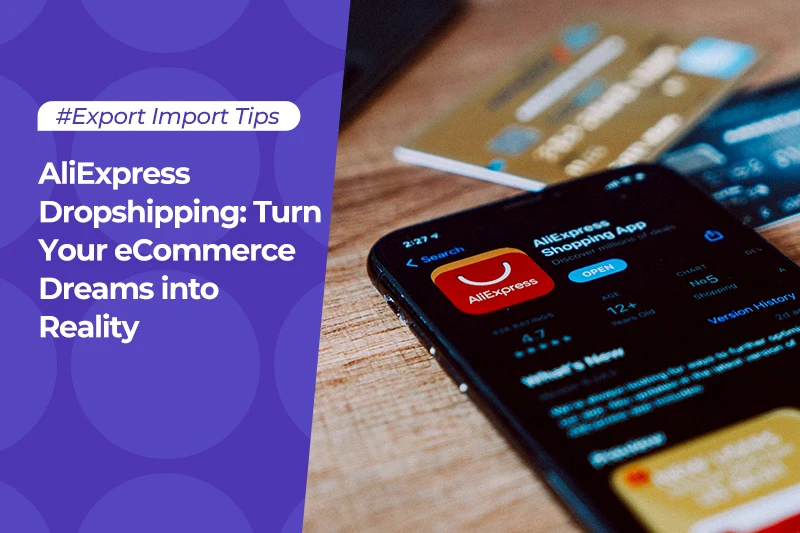What is 3PL? Guide to Third-Party Logistics for Beginner

In the landscape of supply chain management, understanding the concept of Third-Party Logistics (3PL) is crucial for businesses aiming to streamline their operations. But what is 3PL and why is it important? In this blog, we’ll probe into the concept of 3PL and examine its multiple sides. We’ll also explore its pros and cons as well as some topics related to 3PL companies and providers. Whether you are just a fledgling entrepreneur or an experienced business person, this article will help you gain a clearer understanding of 3PL and make you fare better in your enterprise. Let’s begin!
Table of Contents
What is 3PL?
3PL, or third-party logistics, is a comprehensive supply chain service handling stock reception, warehouse inventory management, and order fulfillment for multiple e-commerce clients. Also known as fulfillment companies or warehouses, 3PL providers offer core services like warehousing, inventory tracking, picking, packing, and shipping. Additionally, some 3PL companies offer services like freight shipping, kitting, and reverse logistics (returns). These companies specialize in diverse fulfillment needs, such as cold storage for perishables or handling hazardous materials. Aside from 3PL warehousing and distribution, 3PL can also extend support with services like data analytics and demand planning, aiming to optimize supply chain efficiency for businesses.
Overall, 3PL is the most prevalent form of logistics outsourcing and you may see many successful third party logistics examples on the market. Some studies have shown that 90% of Fortune 500 companies adopt the 3PL mode from one or more 3PLs.

The Third-Party Logistics Process
The whole 3PL process is complicated and involves several aspects. In this spart, we’ll look into the main elements of 3PL and see in what way they contribute to the fulfillment process respectively.
ECommerce Platform Integration
Seamless integration with ECommerce platforms is a critical aspect of 3PL. As online retail continues to burgeon, effective 3PL providers ensure that their 3PL systems seamlessly synchronize with various ECommerce platforms. This integration not only streamlines order processing and inventory management but also enhances the overall customer experience by providing real-time visibility into order status and inventory levels.
FTL And LTL Freight Shipping And Receiving
Efficient management of Full Truckload (FTL) and Less Than Truckload (LTL) shipping and receiving is another cornerstone of 3PL. Full Truckload (FTL) denotes the freight shipping mode where the merchandise shipped by the truck belongs to a single company, whereas Less Than Truckload (LTL) allows merchandise from more than one company to be shipped in one go. These two shipping models of 3PL can save the trouble and cost of having to do the shipping yourself, especially if you need to frequently ship large orders or wholesale orders.
Inventory Management
Once the goods are in warehouses, management is necessary. 3PL companies are typically experienced in inventory management. They often employ advanced technologies to track stock in real time, preventing stockouts or overstock situations and enhancing order accuracy. By outsourcing 3PL management to specialized providers, businesses can achieve optimal stock levels, reduce carrying costs, and ensure products are readily available when needed.
Picking, Packing, And Shipping
Picking, packing, and shipping lie at the heart of order fulfillment. As a consumer places an order, the staff in the warehouse will notice it and find the corresponding items on the shelves. Then, these items are properly packaged to prevent damage from a rough journey of shipping. Finally, the shipper guarantees that the order is promptly collected by the appropriate carrier once it is prepared for shipment.
Same-Day Shipping
Same-day shipping refers to the practice that the orders will be shipped out on the same day they are placed. This will expedite the fulfillment process immensely and ensure higher levels of customer satisfaction. Generally, same-day shipping can reduce the delivery time by a day or two. Note that to fulfill same-day shipping orders, a cutoff time is required. Shipping for orders coming after the cutoff time will have to be scheduled on the following day.
Reverse Logistics
Reverse logistics is the strategic management of product returns and the flow of goods from the customer back to the manufacturer or retailer. Some types of merchandise, like clothing, have a much higher return rate than other goods. In this case, the 3PL warehouses can handle the reverse logistics part. They will manage the goods to be shipped back, examine them for damages, and assess their suitability for returning to stock. By offloading the complexities of handling returned merchandise, recycling, refurbishing, or properly disposing of products onto 3PL companies, business owners can focus more on their core operations and enhance overall efficiency.
The Benefits Of Third-Party Logistics
The benefits of Third-Party Logistics (3PL) are multifaceted, offering businesses strategic advantages in various aspects of their supply chain and operations. Let’s see them in detail below:
Cost Efficiency: Embracing Third-Party Logistics (3PL) streamlines costs for businesses. Outsourcing logistics to 3PL companies reduces overhead expenses, resulting in significant savings.
More Logistics Options: 3rd party logistics companies abound and offer different levels of 3PL services, giving business owners ample freedom in choosing the level of service they have in mind.
Stabler Supply Chain: 3PL contributes to a more stable supply chain. By leveraging the expertise and resources of logistics partners, businesses enhance their ability to navigate market fluctuations, mitigate risks, and maintain consistency in the flow of goods.
Speedier Order Processing & Delivery: Achieve swift order fulfillment by selecting a third-party logistics provider that has strategically positioned warehouse facilities for prompt delivery of your orders.
The Disadvantages of 3PL
While the ecommerce 3PL promises numerous benefits, some parts may limit its feasibility to some extent.
Upfront Cost: A notable disadvantage of 3PL is the upfront cost. Engaging with external logistics providers often involves a wide range of costs, including transportation costs, warehouse costs, pick-and-pack costs, and so on. These can prove a burden for businesses of smaller scale and those with limited capital.
Less Control Over Workflow: Another aspect to consider is the potential reduction in control over workflow. Entrusting logistics functions to a third party means relinquishing a degree of direct oversight. Businesses may find it challenging to monitor processes in real-time and implement immediate adjustments, which can impact responsiveness and the ability to tailor logistics to specific needs.
What Are the Types of 3PL Companies?
It is noteworthy that 3PL companies have their own subdivisions. In the following part, we’ll introduce several different types of 3PL companies.
Full-Service Provider: A full-service 3PL offers end-to-end logistics solutions, managing the entire supply chain. These providers handle everything from transportation and warehousing to distribution and fulfillment. Businesses benefit from comprehensive services, consolidating various logistics functions under a single, streamlined umbrella.
3PL Warehouses: Specialized 3PL warehouses focus primarily on storage and distribution. These 3PL storage providers offer secure, efficient storage solutions and manage the movement of goods within their facilities. Warehousing 3PL providers leverage their expertise to optimize inventory management and shipping, ensuring timely and accurate order fulfillment.
Transportation-Based 3PLs: Transportation-focused 3PLs specialize in managing the movement of goods. They excel in optimizing transportation routes, carrier selection, and ensuring timely deliveries. Thus, businesses can enhance efficiency and reduce shipping costs while navigating complex logistics networks.
Financial and Information-Based 3PLs: These 3PLs specialize in managing the financial aspects and information flow within the supply chain. They handle tasks like auditing freight expenses, processing invoices, and employing data analytics. Essentially, they ensure the financial transactions related to logistics are accurate and efficient and that all the fulfillment-related financial information is at hand.
How to Choose a 3PL Provider?
As the scale of your business grows past a certain point, you might want to choose a 3PL provider to offload increasing logistics burdens. To choose the right and reliable 3PL partner, the following considerations are crucial to guarantee a successful 3PL partnership:
Know Your Needs: Before anything else, you should have a clear picture of your needs in mind. Assess your current and future needs, considering factors like order volume, distribution channels, and any unique aspects of your supply chain.
Evaluate 3PL’s Technology: Analyze the technological capabilities of potential 3PL partners. Ensure they employ advanced systems for real-time tracking, inventory management, and seamless integration with your existing technology infrastructure.
Evaluate Scalability: Your partnership with 3PL will be a long one and your business may grow during your period of partnership, which is why scalability must be taken into account. Opt for a 3PL provider capable of scaling operations in line with your business growth.
Consider Customer Service: Lastly, reliable customer service is paramount. Assess the responsiveness and accessibility of the 3PL provider. A proactive and communicative partner contributes to greater customer satisfaction and a more efficient logistics process.
Conclusion
As we have seen, embracing Third-Party Logistics (3PL) is a strategic move for businesses seeking streamlined supply chain operations. By acquiring a decent grasp of what is 3PL, its pros & cons, 3PL company types, and tips for choosing the right 3PL company, you can be well-prepared to leverage professional 3PL services to optimize logistics and propel your storefront ecommerce business toward operational excellence.
Start selling on Alibaba.com
Logistics can be a substantial burden for businesses of small to medium scale. This is why many online marketplaces like alibaba.com are partnering with 3PL companies to save shipping costs for business owners as well as reduce their load of management.
Currently, there are over 1,700 freight providers and 100 logistics companies cooperating with alibaba.com to meet the logistics demands of business owners. Such an expansive and robust network of 3PL providers ensures that business owners can be spared of the troubles of shipping and focus wholeheartedly on business growth, streamlining their business operation processes.
By simply creating an alibaba.com account, you can embark on your journey of global selling and tap into a universe of business opportunities while offloading your logistics burdens to 3PLs. In other words, alibaba.com gives your business the most exposure with the least management efforts.
FAQs
Does the 3PL provide 24/7 security?
The provision of 24/7 security by a Third-Party Logistics (3PL) provider varies and depends on individual agreements and service offerings. Many reputable 3PL companies employ security measures such as surveillance systems, access controls, and trained personnel to ensure round-the-clock security for the inventory.
What is the difference between 3PL and 4PL?
In simpler terms, a 3PL (Third-Party Logistics) provider handles a company's logistics operations, like shipping and warehousing. On the other hand, a 4PL (Fourth-Party Logistics) provider goes beyond, managing and optimizing the entire supply chain, often acting as a strategic partner. While a 3PL offers specific services, a 4PL integrates and oversees multiple 3PLs for a more comprehensive, streamlined supply chain.
What is a 3PL warehouse?
A 3PL warehouse is a facility operated by a third-party logistics provider to receive, store, and manage inventory from businesses. After products are manufactured, they are shipped to 3PL warehouses, where they are unloaded, documented, stored, and managed. When orders for purchase come, these products in 3PL warehouses will be delivered to consumers, completing the fulfillment processes.
Start your borderless business here
Tell us about your business and stay connected.
Keep up with the latest from Alibaba.com?
Subscribe to us, get free e-commerce tips, inspiration, and resources delivered directly to your inbox.
















